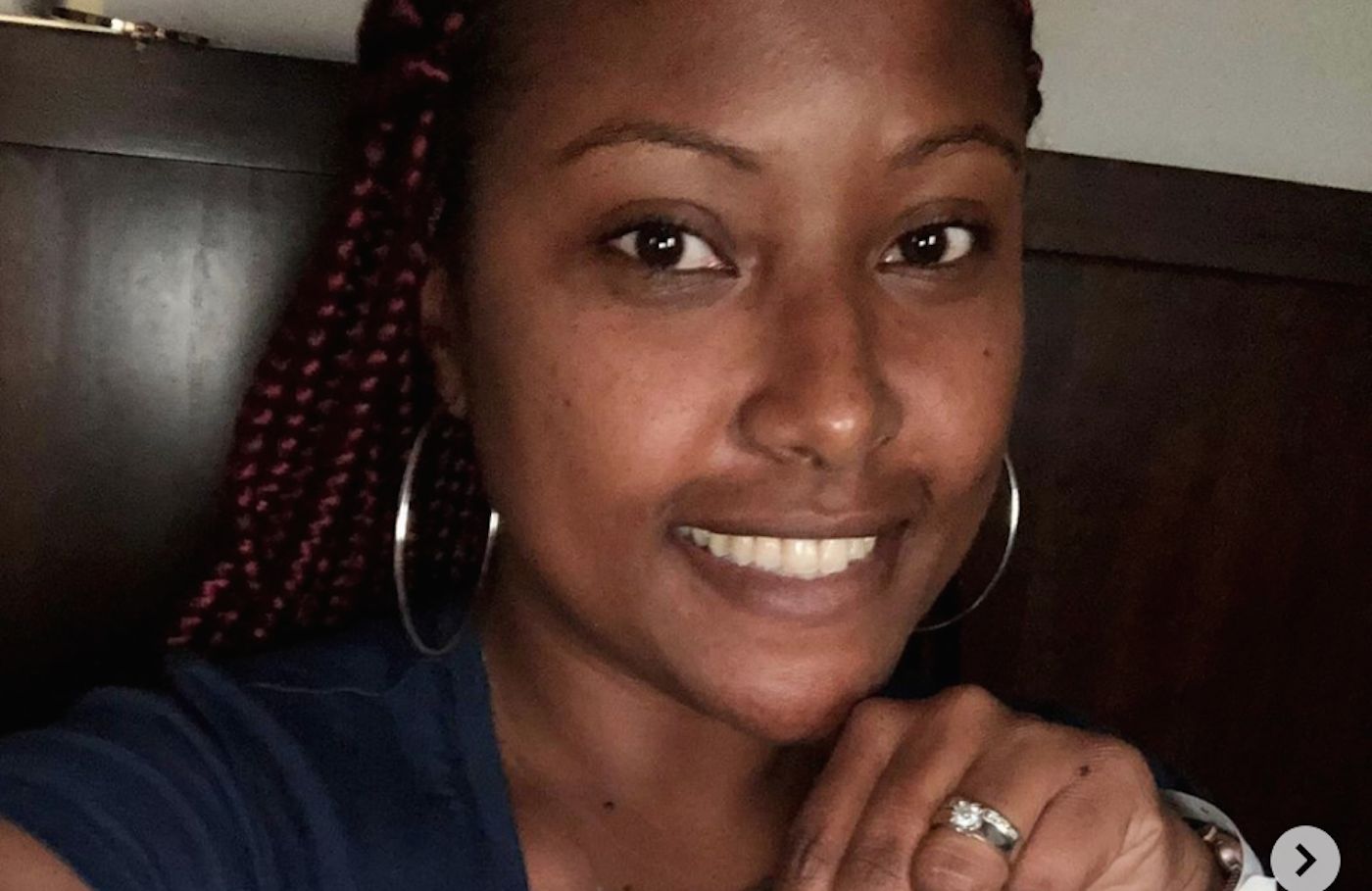
Expectant parents grapple challenges and unknowns as a rule, but anyone who is a parent-to-be during this global pandemic is contending with even more questions and concerns. As the medical community faces down this crisis, a variety of fertility treatments have been put on hold. But care goes on for expectant parents — as well as gestational surrogates like Chelsea Hernandez.
Hernandez, 32, lives in San Diego and is a Marine Corps wife and mom of two.
She's also in the middle of her journey as a gestational surrogate for the second time. Surrogates are paid anywhere from $10,000 to $50,000, depending on the agency to carry to term a baby, genetically unrelated to her, for the “intended” parent or parents (IPs).
Hernandez tells CafeMom that her surrogate agency matched her with her intended parents last year. "Since we are on two different coasts, we — my husband, the couple, and I — met via FaceTime summer 2019," she explains.
Hernandez says they discussed family dynamics, how her first surrogacy journey went, their personal lives, and more.
"I always like to sort of describe the initial match meeting as a first date," she notes. "It’s that whole getting to know each other that starts off awkward, but as the conversation flows, it feels more natural, and, at the end, you know if you all connected or not."
Hernandez and the intended parents felt like they hit it off, and they were "officially matched" in the fall.
It was during Hernandez's second transfer attempt that the global pandemic hit.
"I was unsure if my transfer was even still going to happen, because I have seen a lot of IPs and surrogates voice their sadness and disappointment, due to cycles being canceled," says Hernandez.
That means that if they were in the middle of starting the medication process to prep the body for embryo transfer, it was stopped cold turkey, according to Hernandez. If IPs were doing an egg retrieval to make embryos, that was stopped, too.
As she continued to hear about the cancellation of cycles scheduled around the time as hers, the surrogate got more nervous for her IPs. "I asked if they thought we would be put on hold, and they told me hopefully not since I was a few weeks away from embryo transfer," she explains. "Luckily, we ended up being in the clear."
Hernandez believes she got the green light to continue because of her proximity to the clinic.
"In some cases, the fertility clinic may not be in close proximity to the surrogate, meaning they have to have a plane trip and hotel stay for routine procedures and check-ups," she explains. "With the gray area of travel restrictions, a lot of surrogates cannot get to their clinic, so their cycles are on hold. Lucky for me, the clinic the IPs decided to work with — and who I worked with during my first journey — is only a 20-minute drive away."
Hernandez knows her IPs could have paused everything if they saw fit. "But they seen no threat and neither did my clinic, so we followed through," she says.
Still, the surrogate's experience has been different this second time around.
Hernandez says she encounters medical staff gowned up, taking temperatures, and doing an overall health check as soon as she enters the building. "Once you’re cleared, you’re given a sticker indicating a clean bill of health, led to a hand sanitizer dispenser, and free to board the elevator," she explains. "Appointments at the clinic have been spaced out to make sure not too many patients are seen at once and/or hanging out in the waiting rooms."
In the past, patients could have a support person or their other children present for appointments.
For instance, during Hernandez's first, pre-pandemic journey as a surrogate, she had a support coordinator from her agency, her husband, the intended father, her older son, and the clinic staff for her transfer.
"That is no longer allowed, and you’re only allowed one adult with you," explains Hernandez. So, this time, her husband came.
Even though this experience is different, thanks to the coronavirus crisis, Hernandez says she has no concerns "as of yet."
She says she's comforted by the fact that everyone is taking extra precautions. "And the agency and clinic are doing amazing at communicating with both parties on any updates and/or changes this pandemic may bring moving forward," she notes.
In the meantime, she's taking the process one step at a time.
While speaking to CafeMom, Hernandez had been awaiting the blood test to confirm pregnancy following her transfer. As of April 16, that test came back negative, according to a post on her Instagram account Their Joey My Pouch. But on April 27, Hernandez announced that the intended parents "decided to give it another go."
Hernandez has thought about what the birth might look like if they continue the journey.
Currently, one support person is allowed in the delivery room. No exceptions.
It's disappointing for Hernandez to think that the IPs might not being allowed in the room for delivery. "That moment when these parents lay eyes on their vernix-covered babies with joy and love is the moment us surrogates dream of, so to not have that is tough," she says. "With my first journey, that moment was extremely heartwarming for everyone in the room."
That's why, if social distancing measures are still in place at that time, Hernandez says she'll make her support person the intended mother.
"When it comes down to it, and if this last embryo transfer was successful, and I have to choose only one person to be there, I would definitely choose my intended mother," she says. "My husband understands why. That first moment is so special that he had, that we had, so he knows she would want that moment, as well."
With so many questions about what lies on the horizon, Hernandez urges other IPs and surrogates to "be patient."
"While surrogacy is a gamble anyway, it is even more of one now," she shares. "A lot of surrogacy is hurry up and wait: wait for a medical screening, psychological screening, legal contracts. There may be more waiting. So, both parties may be doing a lot more waiting than usual. Everyone must be OK with that."
But there's no reason for either party to hit the brakes on the process — as long as they're "OK with waiting a little longer than usual or doing things differently."




